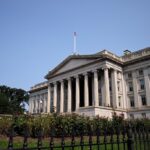Coinbase faces increasing pressure as it deals with regulatory issues and security concerns. It has asked US regulators for clarification on whether banks can provide services to cryptocurrency firms. The exchange argues that the current policy creates unnecessary barriers. Blockchain investigators accuse Coinbase of not addressing security flaws that led to user losses in the millions. The exchange is still focusing on its role as a leader in crypto banking, and protecting investors.
Coinbase is criticized for security flaws as users lose millions to scams
Two prominent blockchain researchers, ZachXBT, and Tanuki42 have criticized Coinbase for failing to fix security flaws that led to huge investor losses. Their research shows that Coinbase users have lost more than $65 million between December 2024 and Jan 2025. The estimated losses per year are over $300 million.
Investigators presented their findings to X. They noted that the reported figures were probably conservative estimations, as they didn’t include police complaints not filed and Coinbase tickets for support.
ZachXBT said that “our number is likely lower than the amount actually stolen, as our data only included thefts discovered in my DMs or on-chain and does not include police reports and Coinbase support tickets we don’t have access to.”
Coinbase has been criticized for its inability diagnose the real cause of scams. Investigators found that scam groups from India were behind some of the more sophisticated attacks, with an emphasis on US users.
Coinbase warns customers not to use virtual private networks, as this could cause their internal security system to flag them incorrectly. ZachXBT, tanuki42, and others have pointed out that scammers block VPNs on their sites to further expose users.
ZachXBT, tanuki42 and others have also detailed some longstanding issues with Coinbase’s security that are still not addressed.
-
Attackers can gain access to APIs by exploiting old keys.
-
Bugs in verification code that can be used to circumvent security layers.
-
Inadequate monitoring allows for the laundering of stolen money through Coinbase.
In addition, the investigation criticized Coinbase’s compliance practices. It stated that Coinbase fails to report properly scam addresses on widely-used compliance tools. This makes it easier for bad actor to remain undetected.
Coinbase’s customer service has also been criticized for its inefficiency. Investigators found that users complained about the “useless” customer service agents and a general lack of support for those outside US time zones.
In a November 20, 2024 interview, a self-described Coinbase phishing fraudster revealed that they earn at least five figures per week targeting certain demographics.
Experts in blockchain security are concerned about how well-organized and strategically planned these scam networks have been. The scammers no longer target random people but rather high-value victims.
Nick Neuman is the CEO of Casa Bitcoin Self-Custody. He recently told his story about a scammer who claimed to be a Coinbase Supporter. The fraudster revealed some shocking information.
We make at least five figures per week. The scammer claimed that they had made $35K in just two days. “We do this for money,” he said.
The most shocking revelation is that the scammers deliberately avoid people who have low incomes, and instead pull contact details from database of individuals with assets over $50,000. Scammers revealed they do not target “poor” people.
Coinbase Reputation on the Line
Coinbase positioned itself in the past as a safe and secure exchange. It often bragged about its security and regulatory approvals. The increasing number of security flaws and social engineering scams has raised questions regarding the platform’s dedication to its users.
Coinbase is yet to respond officially to the latest allegations, but it must fix its security systemic failures to prevent more users from falling victim to sophisticated scam operations.
Crypto users should remain vigilant and double check all communication. Never share any sensitive information, even if the “support agent” claims to represent Coinbase.
Coinbase pushes US regulators to clarify banking rights for crypto firms
Coinbase has intensified its efforts in securing clear regulatory approval to allow US banks to offer services to cryptocurrency companies. Coinbase has officially urged the Office of the Comptroller of the Currency, the Federal Reserve Board of Governors and the Federal Deposit Insurance Corporation to confirm that US banks can engage in crypto related activities without restriction.
Bloomberg reported on February 4, that Coinbase specifically requested the OCC repeal an interpretation letter which, according to Coinbase, required banks to submit an unnecessarily lengthy application for them to be able to deal with crypto assets. Coinbase claimed that this restriction creates entry barriers for traditional financial institutions who wish to offer banking services to cryptocurrency firms.
The exchange also called upon the Federal Reserve to ensure that banks with state charters are allowed to provide crypto custody and to execute transactions involving crypto.
Three prominent US law companies are backing Coinbase in its regulatory drive. These include Arnold and Porter Kaye Scholer (A&P), Cleary Gottlieb, Steen and Hamilton and Wilmer Cutler Pickering Hale and Dorr. These firms stated in a letter that federal law already allows banks to collaborate with Coinbase and engage in crypto-services.
Coinbase, however, stressed that regulatory approval is necessary to eliminate any doubts that may still be present in the banking industry.
Faryar Shirkad, Coinbase’s Chief Policy officer said: “It is important that regulators make it clear to banks that they can partner with third party providers to provide trading and exchange service to their clients.”
There has been much debate about the role traditional financial institutions play in cryptocurrency.
Reports suggest the FDIC actively discourages banks from entering the crypto industry. Major banks such as BNY Mellon, have announced plans to provide crypto custody services. The FDIC allegedly asked some US banks to stop their crypto-related activity, complicating Coinbase’s efforts for regulatory clarity.
Coinbase sent the letter in response to its legal battle with US regulators.
Coinbase filed a lawsuit in June 2024 against the Securities and Exchange Commission and FDIC. It accused them of coordinating efforts to exclude crypto companies from banking services. Coinbase claimed in the lawsuit that both agencies actively blocked financial services for digital assets companies. This was deemed by Coinbase to be unfair and harmful to industry growth.
Paul Grewal, Coinbase’s Chief Legal officer, reaffirmed these claims in 2025. He claimed that the FDIC intentionally withheld “pause letters” pertaining to cryptocurrency businesses as a response to a Freedom of Information Act lawsuit.
The battle for regulatory reform is taking place at a moment of transitional politics in the United States. The crypto community hopes for better regulatory conditions when Donald Trump takes office in 2025.
Coinbase is strengthening its ties with President Trump, signaling their optimism about the positive changes that could be brought by his administration for digital assets.
Coinbase pushes for banking support in crypto ETFs
Coinbase’s efforts to regulate are particularly important, given that it is a custodian of multiple Bitcoin ETFs (exchange-traded fund), launched at the beginning of 2024. This exchange offers custody services for multiple major US Bitcoin ETFs. Regulatory clarity in banking could also increase institutional interest.
Coinbase’s battle for regulatory legitimacy is part of a larger struggle to legitimize and stabilize the US crypto market. Although the legal framework allows banks to provide services to crypto businesses, a lack of regulatory approval continues to cause uncertainty.
The crypto industry is watching to see if the new administration in Washington will remove existing regulatory barriers, or maintain current pressures on crypto.
Coinbase, for now, is the leader in this fight, calling on US regulators and other authorities to provide definitive, clear guidance. This could change the face of the crypto-banking industry in the United States.
This site is for entertainment only. Click here to read more






